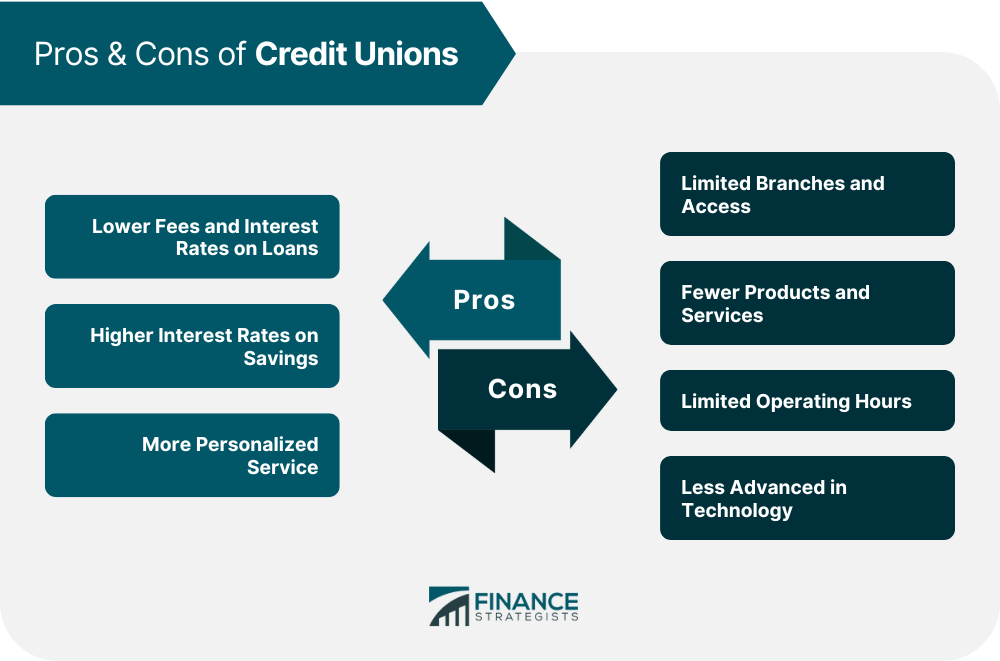Join a Credit Union in Wyoming: Personalized Financial Services for You
Join a Credit Union in Wyoming: Personalized Financial Services for You
Blog Article
The Ultimate Overview to Comprehending Credit Score Unions

Cooperative credit union stand as one-of-a-kind economic entities, rooted in principles of mutual assistance and member-driven operations. Past their foundational worths, comprehending the elaborate operations of debt unions entails a much deeper expedition. Deciphering the intricacies of membership qualification, the evolution of solutions provided, and the distinct advantages they bring requires an extensive examination. As we browse through the ins and outs of lending institution, an insightful journey waits for to shed light on these member-focused organizations and just how they vary from conventional financial institutions.
What Are Lending Institution?
Credit report unions are member-owned banks that provide a series of financial solutions to their members. Unlike conventional banks, lending institution run as not-for-profit companies, indicating their main focus gets on offering their participants instead than making best use of earnings. Members of a credit score union generally share a common bond, such as working for the same company, coming from the exact same community, or belonging to the very same organization.
One of the crucial advantages of cooperative credit union is that they frequently supply higher rates of interest on interest-bearing accounts and lower rates of interest on finances compared to financial institutions. Credit Unions in Wyoming. This is since lending institution are structured to profit their participants straight, permitting them to pass on their incomes in the kind of better rates and fewer fees. Furthermore, credit scores unions are recognized for their individualized customer care, as they focus on building relationships with their members to comprehend their special economic needs and goals
History and Development of Cooperative Credit Union
The roots of member-owned monetary cooperatives, understood today as cooperative credit union, trace back to a time when communities looked for choices to conventional banking organizations. The idea of credit score unions stem in the 19th century in Europe, with Friedrich Wilhelm Raiffeisen frequently credited as the pioneer of the participating financial motion. Raiffeisen founded the very first identified debt union in Germany in the mid-1800s, stressing neighborhood support and self-help concepts.
The advancement of cooperative credit union proceeded in North America, where Alphonse Desjardins developed the very first cooperative credit union in copyright in 1900. Shortly after, in 1909, the initial U.S. credit rating union was created in New Hampshire by a group of Franco-American immigrants. These very early cooperative credit union operated the basic principles of common support, democratic control, and participant ownership.
With time, cooperative credit union have expanded in appeal worldwide because of their not-for-profit framework, focus on serving participants, and providing competitive economic services and products. Today, lending institution play a vital role in the financial sector, offering community-oriented and available financial options for businesses and people alike.

Membership and Qualification Requirements
Membership at a credit rating union is normally limited to people fulfilling details qualification standards based on the establishment's starting concepts and regulative demands. Some debt unions might just offer individuals who live or work in a specific area, while others may be tailored to staff members of a specific business or members of a particular association.
Additionally, lending institution are structured as not-for-profit organizations, meaning that their key objective is to offer their members instead of produce profits for investors. This emphasis on participant service typically translates into more personalized attention, reduced charges, and competitive rate of interest on savings and financings accounts. By satisfying the eligibility standards and coming to be a member of a lending institution, individuals can access a variety of monetary services and products tailored to their details requirements.
Providers and Products Provided
One of the essential elements that establishes credit report unions apart is the varied array of economic solutions and informative post products they provide to their participants. Credit history unions normally supply standard financial services such as financial savings and checking accounts, car loans, and credit report cards.
Additionally, cooperative credit union usually give hassle-free online and mobile financial choices for members to easily handle their funds. They might use perks such as common branching, allowing participants to access additional hints their accounts at various other cooperative credit union throughout the country. Some credit history unions also supply insurance coverage items like home, automobile, and life insurance to aid members shield their assets and enjoyed ones.

Advantages of Financial With Cooperative Credit Union
When thinking about financial establishments, discovering the advantages of financial with credit score unions discloses distinct benefits for members looking for customized service and competitive prices. Unlike big banks, credit rating unions are member-owned and focus on building solid partnerships with their members. On the whole, financial with a credit score union can offer a more individualized, economical, and member-centric financial experience.
Verdict
In final thought, credit report unions stand out as member-owned economic establishments that focus on offering their participants over making best use of profits. With origins dating back to 19th century Europe, credit report unions adhere to concepts of shared help and participant ownership.
Debt unions are member-owned economic establishments that supply an array of financial solutions to their members. The concept of credit rating unions originated in the 19th century in Europe, with Friedrich Wilhelm Raiffeisen commonly attributed as the leader of the cooperative banking movement.The advancement of credit rating unions proceeded in North America, where Alphonse Desjardins developed the very first credit report union in copyright in 1900. Credit report unions try this website normally supply conventional banking services such as financial savings and examining accounts, finances, and credit score cards.When thinking about financial institutions, exploring the benefits of banking with debt unions exposes unique advantages for participants seeking personalized service and affordable rates.
Report this page